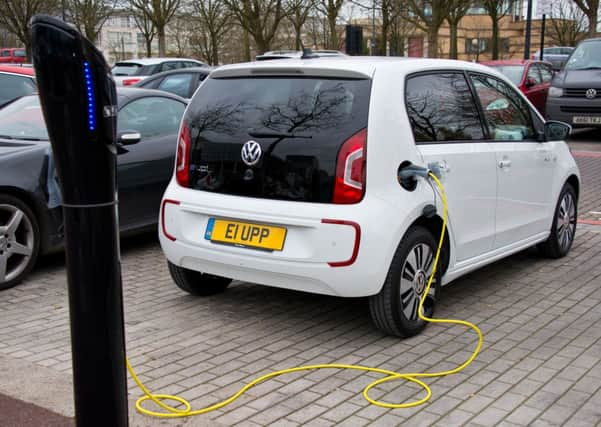First drive: Volt of confidence in VW’s e-up!


That’s probably because they were usually the stereotypical open-toed sandal-wearing planet-saver – self-righteously and single-handedly taking the credit for reducing the world’s CO2 output. I could never see their point. If they wanted to do something constructive they should just not have a car at all and get on their bike – or better still take a hike well beyond my earshot.
Most electric cars I’ve sampled have been lacking in performance, personality and style but most importantly had the alarming tendency to slash their power store and available range every time you accelerated or did something rash like switch on the radio or the lights. And they’re expensive to buy, even with the £5,000 grant from the government to encourage us to go electric. Add to that questions about the life expectancy and replacement cost of the batteries and the sums just don’t add up . . . even if a full overnight charge costs only a couple of quid.
Advertisement
Hide AdAdvertisement
Hide AdSome of the duel-fuel hybrid cars I’ve driven have been OK but the only one I’ve ever thought had a future is the Ampera from Vauxhall, which gave around 50 miles of “free” electric driving before the petrol engine kicked in to give another few hundred miles of range and make it something of a more practical alternative. It also drove well, with great performance and impressive roadholding, helped by the low centre of gravity provided by the wad of batteries along the floorline.
When I was offered the chance to try out the latest electric technology, I went with an open mind to see just what VW had produced in the battery-powered version of their successful city car, the up! (Those lower case letters and exclamation mark are official VW policy). With its title, the e-up! should go down well in Yorkshire (e-oop lad!) but VW expects some interest in Scotland.
Two dealers, Arnold Clark in Glasgow’s Crow Road and Western in Gorgie Road, Edinburgh, have trained technicians and the necessary equipment to handle any high-voltage work. How busy they’ll be remains to be seen. The e-up! has only just become available for order and numbers coming to the UK are very limited but VW is confident there’ll be a lot of interest followed by demand over time.
So what makes this latest entrant into the electric market enough to make me have a re-think? The price is heading in the right direction. It’s under £20k – about £6,000 more than the top of the range petrol version – but has loads of standard equipment such as heated seats and windscreen, DAB radio, cruise control, parking sensors and sat nav, so you’re really only paying a few thousand extra for the latest battery technology which will give you very low-cost, clean motoring for the next decade.
It actually drives very well, too. The lithium-ion battery pack, which weighs 230kg, is bolted into the underside of the vehicle floor in the tunnel normally housing the exhaust system and the space left by the absent fuel tank. It lowers the centre of gravity and gives the car a confident feel on the road.
Performance from the 60-kilowatt electric motor is perky. It has a top speed of 81mph and and it’s happy to cruise at the motorway limit or zip away from the lights. Spirited driving soaks up more power and reduces the range but careful attention to the dials and developing a style to recharging the battery by decelerating, rather than using the brakes all the time, helps increase the mileage from every charge.
Clearly the e-up! would only suit certain lifestyles and demands, but it’s ideal for short runs around town and for commuter journeys of up to 50 miles where you can charge it up overnight at home on a cheap tariff or during the day at the office while you’re at your desk. Free charging points are being established around the country and the government are also promoting the installation of free charging points at your home address.
An electric car is unlikely to handle all the demands of an average family but, as a second car for smaller and shorter jobs, it is now an option for cheap motoring. With VW’s e-up! the options are becoming even more attractive.
VITAL STATS
Car: Volkswagen e-up!
Price: £19,250 (after £5,000 Govt Plug-in Car Grant)
Performance Max speed 80 mph; 0-62 mph 12.4 secs
CO2 emissions 0 g/km